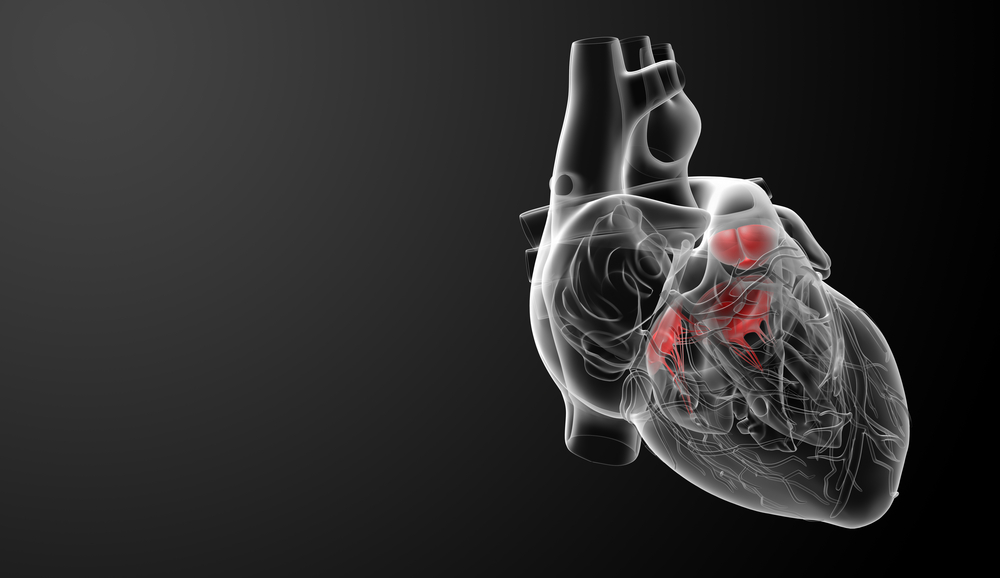Defective RNA Processing Linked to Cardiac Problems Seen in Myotonic Dystrophy Patients

Researchers have discovered the molecular mechanisms responsible for the heart dysfunctions that mark myotonic dystrophy, and reported they appear to be linked to a defective processing of the cardiac sodium channel (SCN5A) RNA. Their study, published in Nature Communications, is titled “Splicing misregulation of SCN5A contributes to cardiac-conduction delay and heart arrhytmia in myotonic dystrophy.”
Myotonic dystrophy (DM), the most common adult-onset muscular dystrophy, is a genetic condition characterized by a wasting of skeletal muscle and heart defects, such as arrhythmia. It currently has no approved treatments.
It is caused by mutations that lead to the expansion of specific nucleotide repeats in one of two genes, depending on the genetic form of DM. The RNAs derived from these mutated genes accumulate and interfere with RNA-binding proteins that in turn modify the processing, known as mRNA splicing, of other RNAs.
Misregulation of the splicing of the insulin receptor, muscle chloride channel, or dysthrophin mRNAs are known to be associated with insulin resistance, myotonia, and dystrophic processes, respectively. However, the molecular mechanisms responsible for the cardiac defects, the second most common cause of death in DM, were not known.
In this study, an international team that included researchers from France, Japan, Germany, Finland, the U.S. and Spain, used RNA sequencing to reveal novel splicing alterations in DM heart samples, including a modification in the splicing pattern of SCN5A RNA. The molecular mechanisms that lead to the alteration of SCN5A were also clarified, and linked to the RNA-binding proteins that are altered upon the expression of mutated RNAs.
A collaboration with Denis Furling at the Institute de Myologie, Paris, enabled the reproduction of the newly found splicing alteration of SCN5A in mice. Importantly, mice with an alternatively spliced form of SCN5A had cardiac dysfunctions similar to those observed in DM patients, suggesting that alternative splicing of SCN5A may contribute to DM cardiac dysfunctions.
“The next step would be to see if, by restoring correct splicing of SCN5A, we can also successfully restore normal heart function,” Nicolas Charlet-Berguerand, research director at Inserm and the study’s lead author, said in a press release. The researchers expect that their findings will lead to new research into this rare disease.






